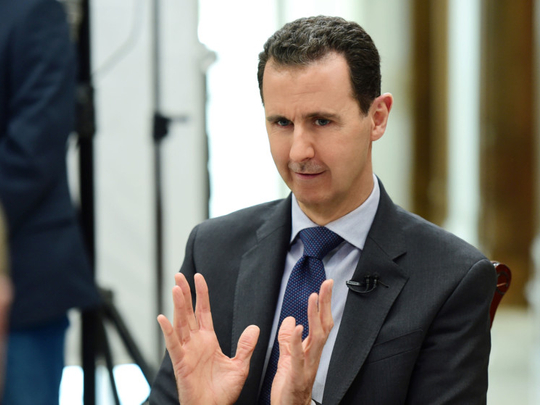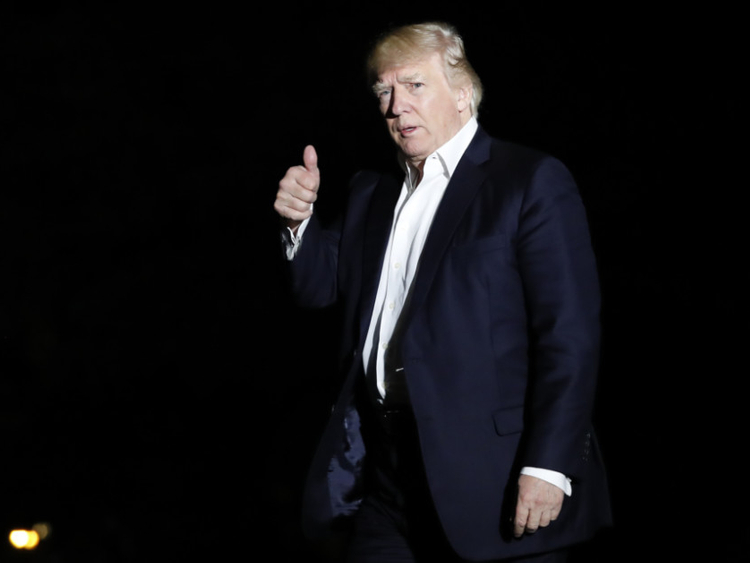
Last week began with yet another meeting seeking to end the Syrian civil war – or at least to bring relief to some of Syria’s people. It continued with the signing of a high-profile agreement to create “de-escalation zones” (everyone involved pointedly refused to call them “safe zones”) in four Syrian provinces. Russia, Turkey and Iran sponsored the agreement and pledged to act as a protecting authority in the zones. The week ended with the fighting in Syria continuing — including fighting in and around the zones.
What should we make of this sad spectacle? The first, and perhaps most obvious, takeaway is that a ceasefire signed by neither the government nor key rebel groups isn’t much of a ceasefire. Second, that when some of the people who do sign object to the presence of the agreement’s sponsors the prospects for even short-term success are not good (during last week’s signing ceremony one opposition delegate stood up and began shouting at the Iranians before walking out).
Finally, it ought to lead us to ask whether foreigners really have a useful role to play in ending Syria’s long-running civil war.
There is no question that there are a large number of outside powers meddling in the Syrian conflict. Most observers believe the regime of President Bashar Al Assad would have collapsed long ago absent the backing it receives from Russia and Iran. On the other side of the equation, the United States, Turkey and a number of other countries all have their favoured clients among Syria’s dizzying array of rebel groups. And the country has also become fertile ground for terrorist organisations like Al Qaida and, of course, Daesh (the self-proclaimed Islamic State of Iraq and the Levant).
Yet, to say the war will not end as long as so many outsiders are involved is not the same thing as saying there would be peace if all the foreigners simply took their troops, money and weapons and went home. Syria’s war has sucked in outsiders who believe that supporting this or that faction serves their short or long-term interests, but there would not be a war in the first place if long-repressed political tensions had not surged to the surface back in 2011 and then been brutally suppressed by the Al Assad government.
So are talks like the ones last week in Astana, and the agreements they produce, essentially pointless? The short answer is: Mostly. Syria’s government and rebels give the distinct impression at Astana and similar gatherings that they are attending mainly to placate their international sponsors. The sponsors often give the impression that they organise these meetings mainly to be seen doing something.
One could argue that many of the outside powers have come to see their own involvement in Syria as a strategic necessity. ‘If my rivals insist on being involved then I need to be involved too or risk being left behind,’ or so the theory goes. This mindset goes a long way toward explaining Washington’s on-and-off, sometimes-military-sometimes-diplomatic approach to Syria.
Since taking office in January the Trump administration has focused more on the military side. This seems to be a function of President Donald Trump’s preference for soldiers over diplomats, though it may also simply reflect the reality of an overstretched and under-staffed US State Department that isn’t in a position to make policy, even if the White House would let it.
Yet there is an even more basic argument for Washington keeping its distance from events like Astana: right now the Americans don’t really know what they want in Syria (And no, just saying ‘destroy Daesh and let the Syrians decide Syria’s future’ isn’t really a policy, not, at least, at this stage of the conflict). The Russians, Iranians and Turks do. Staying away under such circumstances is a bit cynical, but there is a certain logic to it.
For Washington the essential policy problem in Syria has not changed since the earliest days of the conflict: it would prefer to see peace, but is prepared to commit very few resources to make that a reality. Domestic public opinion will not support military involvement on a scale that would make a real difference, and if peace did somehow break out does anyone really believe that the current Congress would approve large-scale reconstruction aid (or that the Trump administration would even propose it)?
At a more basic level, in a still-novice White House currently preoccupied with North Korea, China and big domestic issues like healthcare and tax reform there is little chance that Syria will receive sustained attention.
An accidental military confrontation with Russia or Iran could change that, and as Trump demonstrated with last month’s missile strike he is capable of reacting viscerally to events.
This is where the real danger lies. America has avoided attaching its name to high-profile but ineffective agreements like the one in Astana, but its current footprint in Syria — in the air and on the ground — is just large enough to allow it to get sucked into the wider conflict on short notice and with no real long-term plan.
Gordon Robison, a longtime Middle East journalist and US political analyst, teaches Political Science at the University of Vermont.











